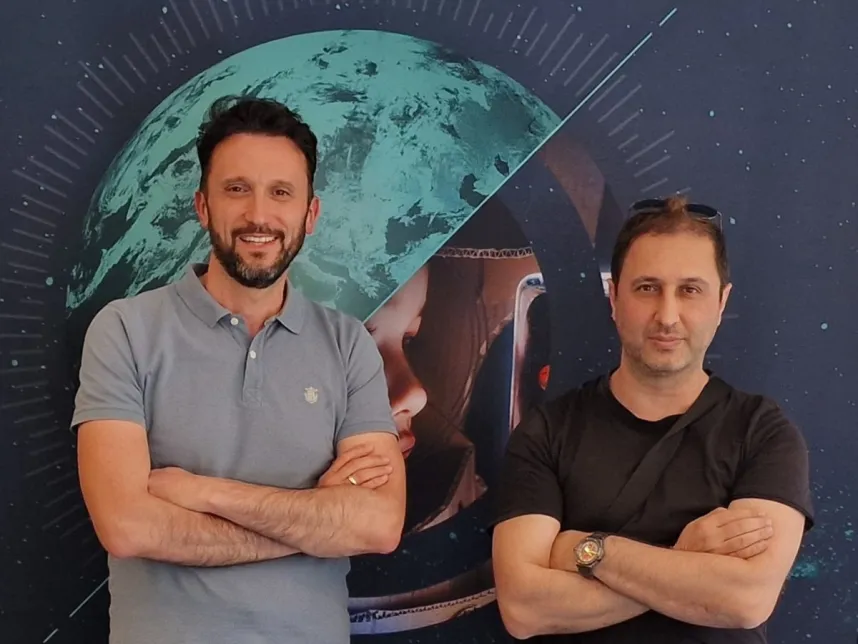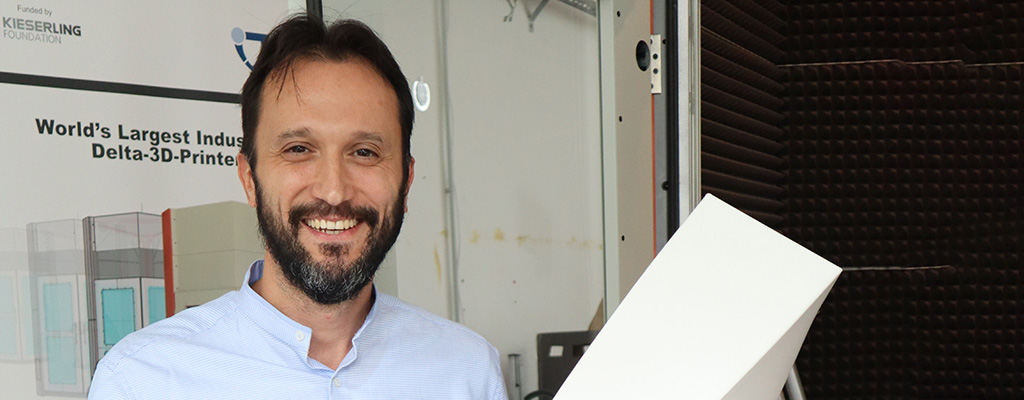Creating One-of-a-kind Pieces for Space Travel Using 3D Printing
Great success for the research group led by Prof. Dr. Dr.-Ing. Yilmaz Uygun at Constructor University Bremen: The start-up "NebulaForm", which emerged from the group, has been accepted into the space incubator of the European Space Agency ESA. The team wants to use the world's largest delta 3D printer, which they developed, to produce components for the space industry. In addition, they are working on producing a 3D printer for applications in space.
The space incubator "ESA BIC Northern Germany", based in Bremen, supports startups in their business development for up to two years, both with tailor-made training and financial support of 50,000 euros. "The incubator enables us to grow in space travel with its specific requirements and to further develop our technology," said Uygun.
Large-format 3D printing is a prime example of how basic research can lead to industrial applications. With a printing range of up to 1.5 meters in radius and a printing height of up to 3 meters, the research group initially developed the printer with its own funds, and secured follow-up funding from the Kieserling Foundation. The project was then continued with funds from the Federal Ministry for Economic Affairs and Climate Action as part of the EXIST program, which supports start-ups from the scientific community. As part of the Bremen 3D Ideas Award, the printer was honored as an outstanding innovation in additive manufacturing.
Many components in space travel are one-off and custom-made or are only produced in small quantities. Uygun and his partner Serkan Özkan are convinced that 3D printing can help produce certain pieces of equipment in space travel in a more demand-oriented, faster, cost-effective and weight-optimized way than by conventional processes. They want to further develop their existing printer, for example by using new materials such as carbon fibers or high-performance plastics that do not melt even at temperatures of well over 300 degrees Celsius. The printing area is to grow to 24 cubic meters. "With that," said Uygun, "you could already print a car."
The startup is also working on an innovative small-format printer on a rotating axis that could be used in space. Classic 3D printers use gravity to print a part layer by layer. This principle does not work in zero gravity. One space agency has already signaled interest. The device could be tested in space as early as next year. "If the printer proves itself in space, new business areas will also open up on Earth," said Uygun, who is connected with the Massachusetts Institute of Technology (MIT) in the USA as a research affiliate.
His students will also benefit from the innovations and experience in the incubator. "We always integrate our current research results into our teaching and discuss the results with the students," said Uygun. "Teaching and research go hand in hand." Two students, Altin Loshi and Idriz Pelaj from the Robotics and Intelligent Systems program, are also involved in NebulaForm.
Questions answered by:
Prof. Dr. Dr.-Ing. Yilmaz Uygun | Professor of Logistics Engineering, Technologies and Processes
E-Mail: yuygun@constructor.university | Tel.: +49 421 200-49 3478

